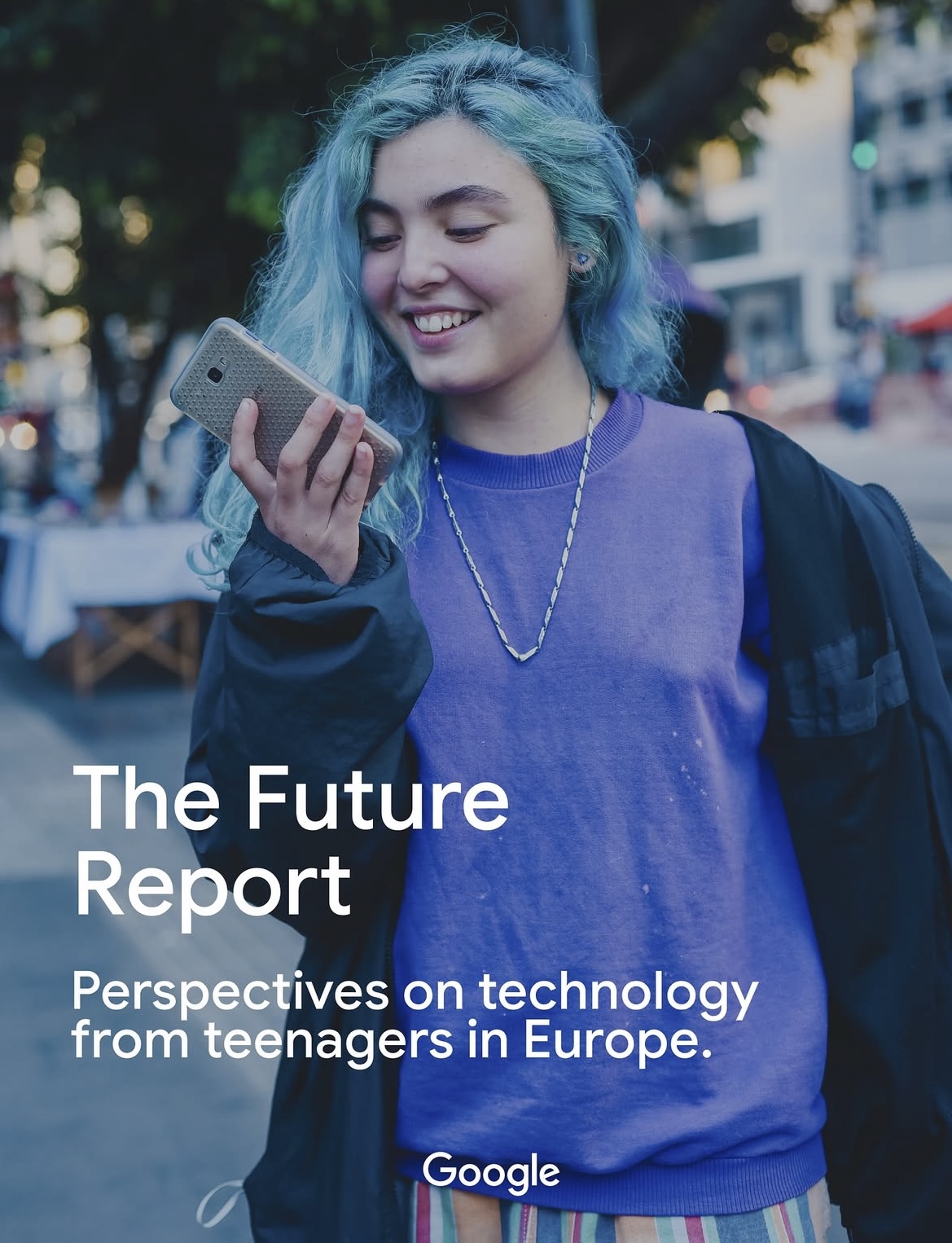by Ryan Meade, Government Affairs & Public Policy Manager, Google Ireland
The Future Report, a landmark youth research initiative commissioned by Google and delivered in partnership with youth consultancy Livity, offers a timely look into the minds of the next generation.
Gathering insights from over 7,000 teenagers (aged 13–18) across seven European countries – Ireland, France, Greece, Italy, Poland, Spain and Sweden – the report elevates the voices of digital natives, providing a crucial roadmap for technology companies, policymakers, educators and parents.
This research demonstrates how Irish and European teens are actively shaping the future of technology, redefining what it means to learn, building new forms of trust and prioritising their personal wellbeing.
Key insights from a generation shaping AI
The report reveals a generation that is not only embracing artificial intelligence but is using it to enhance their creative and intellectual lives, while maintaining a critical perspective on its risks.
1. AI as a catalyst for creativity and learning
The adoption of AI tools is nearly universal among older teens, with a significant majority seeing immediate benefits:
- Near-universal adoption: 96% of older teens (16–18) and 88% of younger teens (13–15) have used AI tools in the past year, ranging from planning activities to learning a new language.
- Creativity boost: 81% of teens who use AI report that it has boosted their creativity, inspiring new projects in writing, art, music and coding.
- Educational tool: 47% of respondents noted that AI helps them ‘explain difficult topics in different ways’, 51% said it can make learning more fun and engaging and 65% said it aids in developing ‘new ideas or solutions to problems’.
Irish schools are early adopters of AI. 91% of teens report that their schools have approved at least one AI tool, compared to confusion across Europe where over a quarter of teens believe their schools haven’t approved any AI tools.
This advantage is bolstered by recent Guidance on AI for Schools from the Department for Education and Youth and Oide Technology in Education (TiE) designed to help schools and educators ensure AI is used safely, ethically and in a way that enhances teaching and learning.
2. Trust, critical thinking and the information economy
Growing up in an era of information overload, European teens demonstrate strong critical thinking skills but are still navigating questions of trust:
- Active verification: The majority (55%) report actively considering whether content is trustworthy, and nearly half (46%) cross-check information against multiple sources.
- Critical reliance: Teens recognise AI as a powerful shortcut but are wary of becoming over-reliant. As one 17-year-old from Ireland put it, AI ‘shouldn’t do the thinking for you’, underscoring the importance of maintaining fundamental critical reasoning skills.
3. Wellbeing and the quest for digital balance
Contrary to common narratives of constant connectivity, most teens are consciously seeking balance and taking steps to manage their digital lives:
- Managing online habits: 94% of Irish teens feel they manage their online habits well (compared to the EU average of 80%).
- Active strategies: They manage their mental health and happiness through simple, deliberate strategies, including spending more time with family and friends (43%), focusing on offline hobbies (31%) and exercising (30%).
4. The critical role of parental guidance: the most trusted source
Amidst the complexity of the digital world, the report delivers a clear and important finding: Parents and guardians are the single most trusted source of advice for young people regarding healthy online habits.
- Trusted counsel: Parents and guardians are the most trusted source of advice about healthy online habits for nearly a third of teens (32%), far surpassing friends (12%) and teachers (9%).
- The age gap: This reliance is most pronounced in the early teenage years. More than half (54%) of younger teens (13-15) turn to trusted parents or guardians to learn healthy online habits.
- A window of opportunity: Crucially, this openness to parental advice drops significantly among older teens (16-18), with the number falling to less than one in five (19%). This contrast suggests that the primary opportunity for parents to instill strong, healthy digital habits and media literacy occurs in their children’s early teenage years.
- Upskill on social media and AI: Finally, more than a third of Irish teens (34%) wished their parents knew more about social media and online information, suggesting a desire for parents to upskill so they can continue to help teens understand and navigate the online world.
The crucial findings of The Future Report will be presented and discussed at the Barnardos Plugged in Switched Off event in Dublin.
This conference, which takes place on Friday, 14 November 2025, at The Foundry (Google HQ), addresses the critical issue of parent and carer involvement in children’s online worlds. With support from Google.org, the event brings together educators, industry experts, parents and students who collectively work to build safer, more supportive online spaces for young people.
